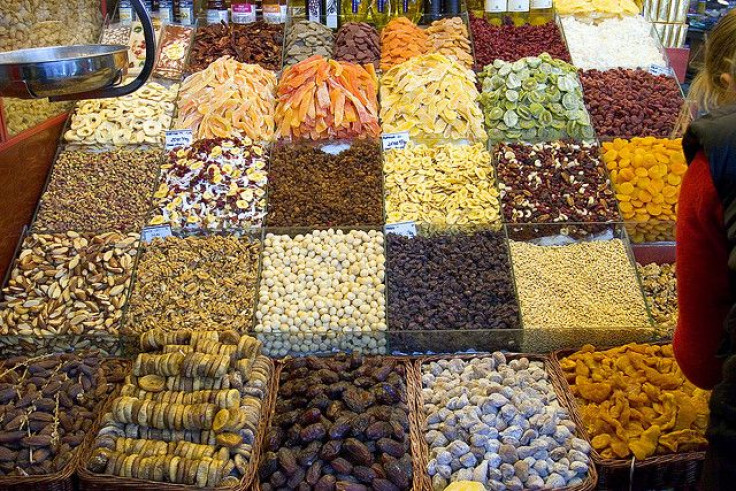Antioxidant-Rich Diet Linked to Reduced Risk of Pancreatic Cancer

Worldwide, pancreatic cancer claims more than a quarter million lives annually. It is a particularly aggressive cancer with only 5 percent of patients surviving beyond five years from their diagnosis. As researchers devote more and more time to studying the link between diet and disease, it is becoming clear that the foods we eat may play a significant role in the development of cancer and other serious and potentially deadly conditions.
Researchers affiliated with the European Prospective Investigation of Cancer (EPIC) study found a strong correlation between high intake of antioxidants and reduced risk of pancreatic cancer. Particularly beneficial substances include selenium, vitamin C and vitamin E.
To investigate the connection, the team gathered information on the dietary habits of 23,500 study participants. They then consulted a database of over 11,000 foods to retrieve the nutritional data on the foods noted in the surveys. Those who were in the top 25 percent for selenium consumption were 50 percent less likely to develop pancreatic cancer compared to those in the bottom 25 percent. Cancer risk was reduced by 67 percent for participants who were in the top 25 percent for consumption of selenium and vitamins C and E.
These findings make sense as one of the primary functions of antioxidants is preventing the type of cell damage that fuels diseases like cancer. Our cells are under assault from various sources, both internally and externally and these substances appear to play a role in both shielding and repairing that damage.
You can easily increase your intake of antioxidants by increasing consumption of fruits and vegetables and other plant foods, which are some of the richest sources. Antioxidants are often one of the substances responsible for giving these foods their color so eat a variety across the color spectrum to maximize your intake of available antioxidants.
Foods rich in selenium include Brazil nuts, bran, fish, sunflower seeds, chicken breasts, whole grains and walnuts. Good sources of vitamin E include wheat germ, sunflower and safflower oil, nuts, seeds and green vegetables. Foods high in vitamin C include red peppers, oranges, grapefruit, kiwi fruit, green peppers, potatoes, broccoli, strawberries, Brussels sprouts, cantaloupe, cabbage, cauliflower, tomatoes, spinach and green peas.
While supplements may have their place in certain instances, it is probably best to rely on getting the bulk of your nutrients from your diet. Whole foods have a complex makeup and the benefits of certain nutrients may come from an unknown synergistic reaction with another nutrient for example. You would not get the same benefit from taking that substance in isolated supplement form. Plus, eating foods rich in antioxidants ensures you are getting other beneficial vitamins, minerals, fiber and probably as of yet unknown nutrients.
While there is no one definitive way to prevent getting cancer or any other disease, we can stack the odds in our favor by eating a healthy diet. Food is the fuel that keeps us going and it seems logical that what we are eating would have a significant impact on our health and functioning. Cancer is one of the most feared diseases and it appears that simple lifestyle changes can reduce the risk of getting it.
It is empowering to know that we can play such an active role in our health. We may not have total control over many things in our lives, but we can control what we put in our bodies. Take full advantage of that power and make a commitment to eating more healthful food. You will feel better, look better and reduce your risk for many serious diseases.
The study was published in the journal Gut.
Kelli Cooper is a freelance writer who specializes in health content. She has a passion for helping others and is particularly interested in Eastern medicine systems. To learn more about Traditional Chinese Medicine and boosting your immune system as a defense against cancer, be sure to visit Solstice Medicine.



























